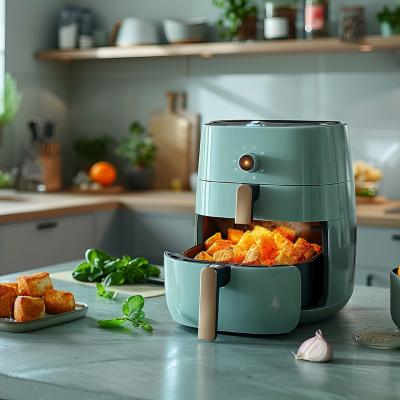
There are many different types of cooking oils in the market today, and it can be difficult to decide which one is the best for you. Two of the most popular oils are peanut oil and corn oil. Both have their own unique benefits and uses.
Both peanut and corn oils are extracted from the seed part only. Peanut oil has slightly more vitamin E than corn oil, but corn oil contains more magnesium, potassium, and zinc. Both oils are a good source of vitamin E, magnesium, and potassium, but corn oil is a better source of zinc.
In this article, we will discuss the benefits of both peanut oil and corn oil and how to use them. We will also help you decide which one is better for you!
Difference In Extraction Process Of Peanut And Corn Oil
Peanut Oil
Because peanut oil is processed differently, the final product varies depending on how it was made. Peanut oil can be either refined or unrefined.
Unrefined oils are extracted from peanuts by pressing them into cakes and crushing them to produce crude peanut oil. The production of refined edible oils takes one step further.
Once cold-pressed, the crude peanut oil is heated to very high temperatures (up to 450°F) and subjected to an additional filtering process that removes odor and color leaving behind a bland golden liquid.
Corn Oil
The corn germ is obtained from the dried maize kernel through steam distillation or water extraction followed by partial separation of fatty acids via solvent extraction methods like hexane, chloroform, etc. Which also yield a higher corn oil from the germ.
The crude corn oil is then purified by degumming, neutralization, and bleaching processes to obtain refined corn oil.
- Degumming: The impurities are removed by treating it with phosphoric acid or citric acid followed by washing with water to remove the free fatty acids.
- Neutralization: After the refining process, free fatty acids are removed by adding caustic soda (sodium hydroxide). Fenugreek seeds can also be used in place of caustic soda but they give a bitter taste to the edible corn oil. Then further washed out with water for complete removal of soap formed from free fatty acids and alkali.
- Bleaching: After the neutralization process, a small quantity of bleaching earth is added to the oil and stirred well. This absorbs all color pigments and imparts a pale yellow appearance to the oil.
Both peanut oil and corn oil are extracted from plants, but they are processed differently. Peanut oil can be either refined or unrefined, while corn oil is always refined. The final product of each type of oil depends on how it was made.
LEARN MORE: Can You Mix Peanut Oil and Canola Oil?
Peanut Vs Corn Oil: Nutrition Value
Peanut oil
One tablespoon of peanut oil contains about 120 calories, 14 grams of fat (of which two are saturated), and no cholesterol. It is also a good source of vitamin E, niacin, folate, magnesium, and zinc.
Corn oil
One tablespoon of corn oil contains about 119 calories, 13.56 grams of fat (of which one gram is saturated). Corn oil is also a good source of vitamin E and the minerals magnesium, potassium, and zinc.
Both types of oils have similar calorie counts and nutritional values. Peanut oil has a higher amount of vitamin E than corn oil, but corn oil has more magnesium, potassium, and zinc.
LEARN MORE: How to Store Used Peanut Oil?
Difference In Benefits Of Peanut And Corn Oil
Lower Cholesterol Levels
Peanut oil helps lower the levels of bad cholesterol in your blood. It does this by increasing the number of good cholesterol particles and decreasing the production of fatty acids.
The mono-unsaturated fats found in peanut oil help increase “good” HDL cholesterol while lowering “bad” LDL cholesterol.
This is also true for corn oil, which has been shown to reduce LDL (bad) cholesterol when used as a substitute for other oils that contain saturated or trans fat.
Good For Your Heart
Peanuts are rich in antioxidant compounds called polyphenols, especially resveratrol, which protect against free radicals and cardiovascular disease.
According to one study, eating two tablespoons per day of peanut oil for four weeks lowered the risk of heart disease in healthy women by up to 30 percent.
Reduce Inflammation
Both peanut and corn oils have anti-inflammatory effects, which is beneficial if you are struggling with conditions like arthritis or asthma. The omega-fatty acids found in these oils can help reduce inflammation throughout your body.
May Help Prevent Cancer
Some research has shown that the antioxidants present in peanut oil may help prevent some types of cancer, such as ovarian cancer.
These antioxidants work to neutralize free radicals, which can damage cells and lead to cancer development. Corn oil also contains antioxidants, so it likely has the same benefits.
Good For Your Skin
Peanut oil is often used in skincare products because it can help moisturize, soften and smooth your skin. This is due to its high vitamin E content, which acts as an antioxidant to protect your cells from free radical damage.
Corn oil has also been shown to improve symptoms of dry skin, including scaling and roughness.
May Help With Weight Loss
Peanut oil contains palmitic acid, a fatty acid that may promote weight loss by increasing fat burning in the body during exercise.
It’s important not to overdo this effect though; peanut oil is still very high in calories, so you still need to watch how much you use on a daily basis if you are trying to lose weight. Corn oil for weight loss is still controversial.
LEARN MORE: How Many Times Can You Use Peanut Oil?
Peanut Oil Vs Corn Oil: Side Effects And Risks
Peanut allergies are quite common and can cause anaphylaxis, which is a life-threatening reaction that causes severe symptoms like difficulty breathing and low blood pressure.
Corn allergies also exist but appear to be less common than peanut allergies. If you have food allergies, talk with your doctor before using either type of oil.
Both types of oil are high in calories and can cause weight gain if you consume too much. Peanut oil is also high in saturated fat, which can increase your risk of heart disease if eaten in large quantities.
LEARN MORE: Can You Use Peanut Oil in Cake Mix?
Use of Peanut Oil Vs Corn Oil
Both oils can be used in cooking, but peanut oil is better for high-heat cooking methods like frying because it has a higher smoke point. Corn oil is best used for lower-temperature methods, like baking or sautéing.
You can also use either type of oil as a salad dressing or dip. Simply mix together one part oil with three parts vinegar or citrus juice. Add some herbs, spices and/or garlic for more flavor.
If you want to use peanut or corn oil in a recipe that calls for butter, one tablespoon of oil is equal to one tablespoon of butter. This can be beneficial if you are trying to reduce your saturated fat intake.
While there are several differences between peanut oil and corn oil, they can be used in many of the same ways. Both make a great addition to your kitchen pantry – just choose which one suits your needs best.
LEARN MORE: Can You Use Peanut Oil in a Deep Fryer?
Comparison Of Storage Of Peanut And Corn Oil
Both oils should be stored in a cool, dark place. Peanut oil will last for about six months, while corn oil will stay fresh for up to a year. If the oil turns cloudy, it has gone rancid.
The oil that is over a year old should be thrown away and replaced with a fresh bottle. If you are unsure about how long your corn or peanut oil has been sitting in your pantry, give it a good sniff to check for any signs of rancidity before using.
LEARN MORE: Can You Use Peanut Oil In Brownies?
Peanut Oil Vs Corn Oil Usage Preference
Peanut oil is a more popular cooking oil choice in the United States than corn oil, but corn oil is still commonly used.
According to the National Oilseed Processors Association, peanut oils accounted for about 37 percent of total domestic vegetable oils sold in 2016, while corn oils made up only about 16 percent.
However, this may start to change as people become more aware of the health benefits of both types of oils.
LEARN MORE: Can You Use Peanut Oil For Baking?
Peanut Oil Vs Corn Oil: Which One Would You Choose?
Peanut oil and corn oil both have similar nutritional profiles.
The main difference is that peanut oil contains a little more vitamin E and saturated fat, while corn oil has slightly more magnesium, potassium, zinc. Both types of oils can be used for cooking, frying, or baking.
If you are trying to lose weight, avoid eating too much of either type of these oils on a regular basis because they contain high amounts of calories.
If you struggle with allergies to peanuts or corn, talk with your doctor before using the corresponding oil just in case it causes an adverse reaction.
LEARN MORE: Can You Use Peanut Oil Instead Of Vegetable Oil?
Conclusion
In conclusion, both peanut oil, and corn oil have a number of health benefits that make them good choices for cooking and eating. They have similar calorie counts, nutritional values, and anti-inflammatory effects.
Be sure to watch your portion sizes with either type of oil if you are trying to lose weight, as they are both high in calories. Ultimately, it’s up to you to decide which one is the best fit for your lifestyle. Try them both out and see which one you prefer!



